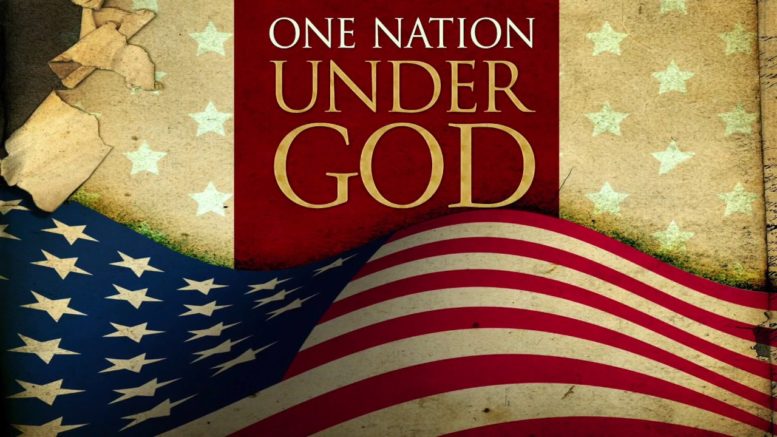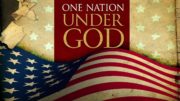The last article discussed rights. This time it’s law itself. Next time we’ll look at their societal role. Few subjects are more relevant to us today than these two. Again, I’m only going to hit the high points. There are plenty of other places where I’ve discussed these issues in more detail.
Relationship Between Law and Rights
I’m going to start with defining both terms. Then we’ll move on to whether a relationship exists between the two. We defined a right last time. A right is a specific capability claimed on the basis of just or moral grounds. A right concerns some specific thing such as; being, the ability to act, or dominion. However, a legal definition of a right would go along the lines of a proper claim or title to, or interest in, a thing.
Therein lies the difference. A right is a proper moral claim, whereas a law concerns something about that claim. Laws are derived from a right; they cannot properly create them. God’s natural and divine law have their basis in His natural and divine rights. God commands something because it is right; man is right because he commands. Man uses positive human laws to create human rights. God’s changeless values provide natural laws source; man’s changeable values the second. Nothing could be more different. The first lead to freedom; the second slavery.
The differences in values is critical. Man needs God’s changeless values to stay on course. Take our brothers and sisters in progressive churches applying man’s values to God’s word. They are leaving truth behind; heading into a no-man’s land of assumptions where one loses their way. It is a dark place, but not too late to change. Only when walking in God’s word do we receive the benefit from His natural rights. (Matt. 7:24-7)
This leads to our next principle.
Natural rights lead to primarily relying on natural law.
At America’s founding, we relied primarily on natural rights and laws. Do we still? We’ll discuss that next time.
Universals and Particulars
The problem just mentioned is an old one. It concerns the philosophical area of epistemology—the problem of knowing. Pagan Greek philosophers struggled with this problem, and never found an answer. It’s the problem of universals and particulars; the one and the many. Particulars are the things we see all around us in the world. Universals provide meaning to the particulars. Plato provides an example using the word “apple.” When discussing apples, we do not refer to all of the different kinds of apples that exist each and every time. Instead we put all of these together under the word “apple” to convey meaning.
Greek philosophers looked for a universal providing meaning for their existence. They first looked at the polis as a possible universal. This word originally meant more than just a mere city-state. It referred to the society within the city-state. They realized this was insufficient. They next turned to their gods to provide a universal. But while their gods were personal, they were not substantial enough to provide a universal. A Biblical answer can be found in the writings of Clement of Alexandria based on reason and faith.
Reason and Faith
Clement responded to second century Platonic philosophy in advocating Christianity. He had to address two concepts. The first was the one and the many mentioned above. The second a theological argument concerning transcendence (remote/beyond human knowledge) versus immanence (knowable/present in the world). I’ll begin with the second concept. God the Creator, Elohim, is one, transcendent and directly unknowable by human knowledge. However, God’s power—expressed through Yahweh—must be immanent as scripture associates many different positive attributes with it. Yet both are one as God is one. (Deut. 6:4)
As God is transcendent, we cannot know Him directly. But does that mean we can have no understanding of Him? No. We know God through a process of confession, contemplation, and analysis that strips away “not what He is but what He is not.”[1] This process suggests that “In reasoning, it is possible to divine respecting God,”[2] by moving within the world of thought. However, reason alone is insufficient.
“Should one say that Knowledge is founded on demonstration by a process of reasoning, let him hear that first principles are incapable of demonstration; for they are known neither by art nor sagacity…. Hence … the first cause of the universe can be apprehended by faith alone.”[3]
We come to know God through faith. Knowledge of Him comes not from man, but by His power through the Word—for “the grace of knowledge is from Him by the Son.”[4] God is both one and many, three persons or natures within one Being.[5]
Types of Law
Thomas Aquinas classified law into eternal, divine, natural, and human. Law is meant to direct people. We develop it using reason supporting the common good, and grant authority(s) as stewards to care for a community.[6]
Eternal Law
Eternal law is the source of all law, as God is all law’s source. He stands outside of time. “Promulgation is made by words spoken or written down. In both ways an Eternal Law is proclaimed by God’s utterance, since the Divine Word and the Book of Life are eternal.”[7] Divine and natural law are also derived from the His will.
Divine Law
Man needs divine law to guide his conduct, because our nature is not inherently good, so human law alone is insufficient. Divine law orders Man to God and directs Man’s behavior with his fellow man, thereby supporting justice and our purpose. God’s ordained us for an end greater than we can achieve on our own. Man needs divine law to direct him as his nature and human law are insufficient.
Natural Law
Natural law (1) derives from Eternal Law, (2) like divine law comes from the divine will therefore Man cannot change it, (3) requires divine or human law to be applied, and (4) relates to moral precepts—that is, virtue.
Natural rights encompass both the laws of nature and nature’s God. The first relates to creation, much of which Man shares with it. The second is unique to Man because of Man’s reason and God’s revelations to him. Man can choose to make additions, but rarely, if ever, should there be deletions, as Man’s will lies below God’s.
Human Law
Human law is to be consistent with the divine will through divine and natural law, and support the common good. Unjust laws are contrary to God’s will. In these cases, Man is to obey God. Positive law is part of human law. Human laws are also subject to change as they have their basis in Man’s nature, but the people should sanction the human law they create. Finally, human law is to apply equally to all—just as divine and natural law do.
The next several articles examine some significant societal implications derived from the type of rights and laws we choose.
Footnotes:
[1] Rev. Alexander Roberts and James Donaldson, The Ante-Nicene Fathers, Fathers of the Second Century: Hermas, Tatian, Athenagora, Theophilus, and Clement of Alexandria (Entire), Vol. 2, p. 461, Wm. B Eerdmans Publishing Co., 1989. Stromata, V, XI.
[2] Ibid, p. 462, Stromata, V, XI.
[3] Ibid, p. 350, Stromata, II, IV.
[4] Ibid, p. 461, Stromata, V, XI.
[5] Wolf, Dan, pp. 50-9, The Light & The Rod, Why Biblical Governance Works, Living Rightly Publications, 2020.
[6] Wolf, Dan, pp. 149-163, The Light & The Rod, Why Biblical Governance Works, Living Rightly Publications, 2020.
[7] Aquinas, St. Thomas, Summa Theologicae, Vol. 28, p. 19-21, McGraw-Hill Publishing Co., 1970, 1a2ae, 91, 1.



